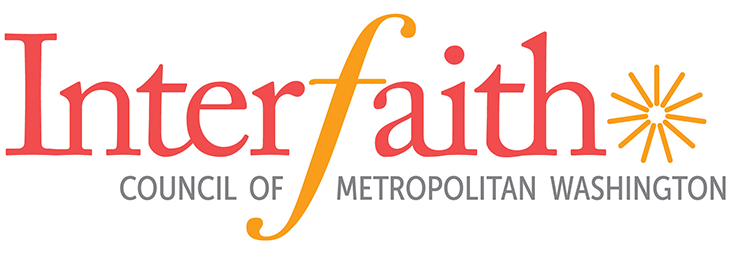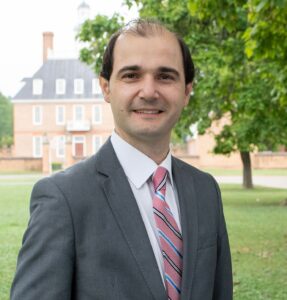Over the summer, along with nine other amazing people across the country, I was named a 2023 BJC Fellow. It is a tremendous honor to be a part of such a select group of scholars, practitioners, and community leaders of diverse educational, professional, and religious backgrounds. BJC Fellows Program involved a 5-day seminar in Colonial Williamsburg, where we explored the legal, theological, and historical underpinnings of religious freedom and returned to our local contexts with a more robust understanding of BJC’s “faith, freedom, for all” motto.
Through lectures from BJC staff, interactions with scholars and interpreters, and touring the historical sites, we were immersed in the vital place of Colonial Williamsburg in the early days of VA Colony. We also learned of religious communities’ struggles, challenges, and triumphs, especially the Baptists oppressed by the Anglican Church in VA, which energized and inspired figures like Thomas Jefferson and James Madison to take steps toward alleviating the pain and suffering of these communities. This, in turn, influenced religious freedom to be recognized, internalized, and ratified in the state and the nation.
As a result of this experience, we must approach “faith, freedom, for all” from a “one for all, all for one” point of view for those harassed, persecuted, and imprisoned because of living their lives according to their conscience. With this understanding, we can collectively inform, partner, and advocate for religious freedom for all challenged and mistreated because of their religious beliefs and identities. More recently, there have been additional threats, too.
Living in the DMV area and working in Washington, DC, for the last ten years, I have seen the shift towards a more divisive language and dehumanizing rhetoric against ethnic, cultural, and religious minority groups and immigrant communities. When this is coupled with violent “activism” and weaponized “politics,” it became more apparent to the rest of the country, such as in the case of January 6, 2021. Americans may not have fully recognized its dangerous ideology and societal destruction before the insurrection, but in the U.S., religious nationalism shows itself in the form of “Christian nationalism.” According to Andrew Whitehead and Samual Perry, in their extensive scholarship in “Taking America Back for God,” it is idealized as a “mythic society in which real Americans – white, native-born, mostly Protestants – maintain control over access to society’s social, cultural, and political institutions.”
Regardless of our faith tradition, we are commanded to love one another. Whether we worship at a church, mosque, synagogue, or temple, America has no “second-class” faiths, which are all equal under the U.S. Constitution. As Americans, we value our system of government and the good that can be accomplished in our constitutional democracy.
David Tassell, in “Polarization and Depolarization in the U.S.” from the Center for Faith, Identity, and Globalization (CFIG), defines “religious nationalism” as “another force in American life under the umbrella of religion to be examined that is arguably antithetical to American civil religion.” He also states that “Understanding religious nationalism in the U.S. helps illuminate a significant cause of polarization but also helps to differentiate civil religion and its potential use in depolarization.”
As a 2023 Fellow, I am glad that BJC addresses this persistent threat to our religious communities and democracy with “Christians Against Christian Nationalism,” a grassroots movement of Christians from across the theological spectrum launched in 2019. I propose that we take this initiative one step further and call it “We the People Against Religious Nationalism” to reject this political ideology that seeks to distort religious identities and democratic ideals of America.
With BJC’s almost nine decades of legacy in religious liberty through education, scholarship, and advocacy, this experience will be an incredible addition to my religious freedom toolbox. It will help me move forward toward becoming a partner and an ally of all faiths by upholding these values. If you want to join the 2024 cohort, you can apply to the BJC Fellows Program by March 1, 2024.
Dr. Mehmet Saracoglu is the Director of the Center for Faith, Identity, and Globalization (CFIG) at Rumi Forum, a 2023 BJC Fellow, and a 2019 Emerging Leader of Leadership Montogomery.
Previously, he served at Rumi Forum as the Public Affairs Director, Government, Media, and Community Affairs Director (Washington, DC), and Executive Director (Maryland). Mehmet holds Mining Engineering degrees from Istanbul Technical University (B.S.) and the University of Kentucky (M.S. and Ph.D.). During his graduate studies, Mehmet was the founder and president of the Interfaith/Intercultural Dialogue Organization. He received a Religious and Civic Leaders certificate from the Religious Freedom Center at the Freedom Forum Institute and a Training of the Trainers certificate from the Freedom of Religion or Belief (FoRB) Learning Platform. Mehmet is a United Nations Association-National Capital Area, National Press Club, and Public Diplomacy Council`s Citizen Diplomacy International member.

